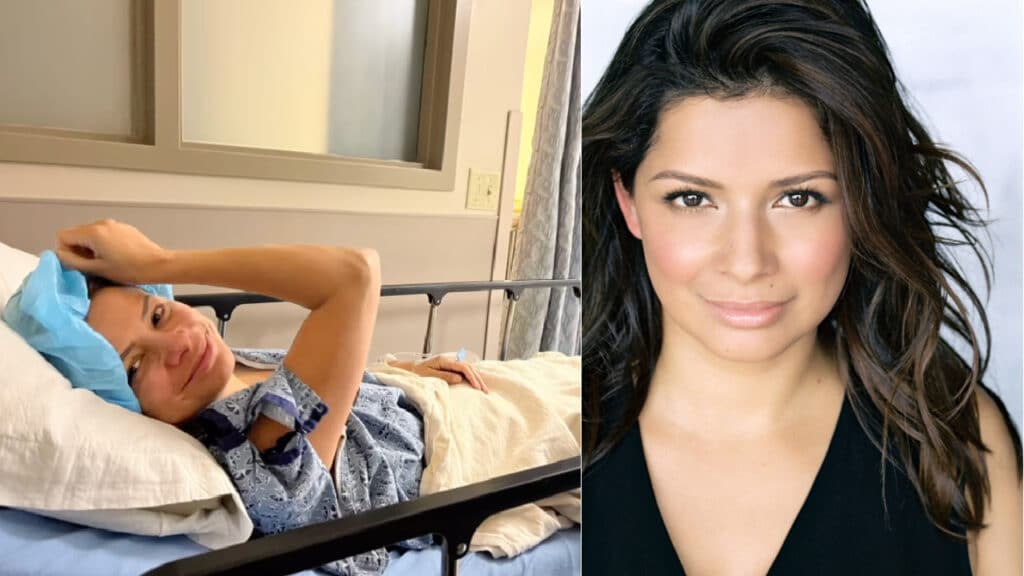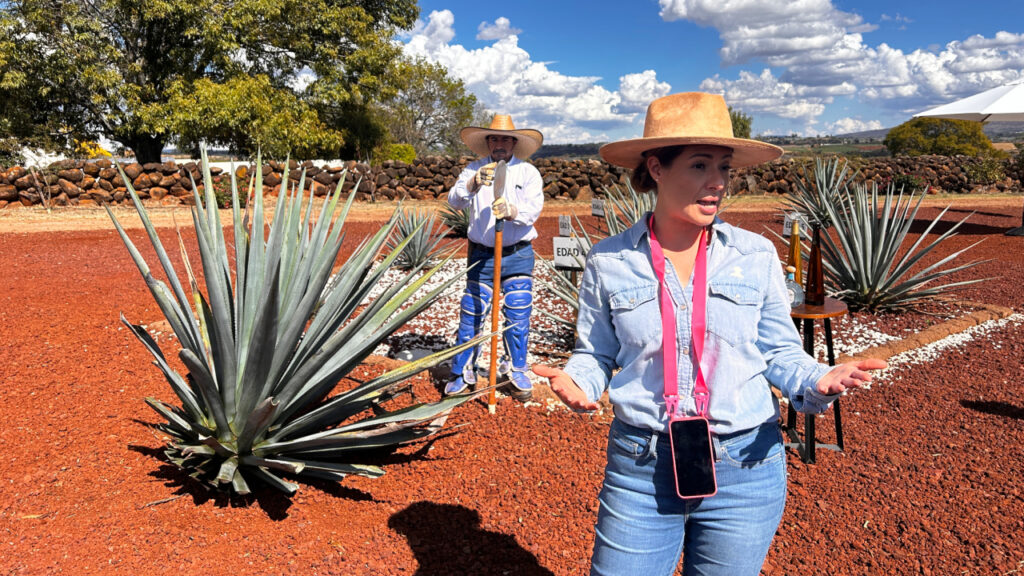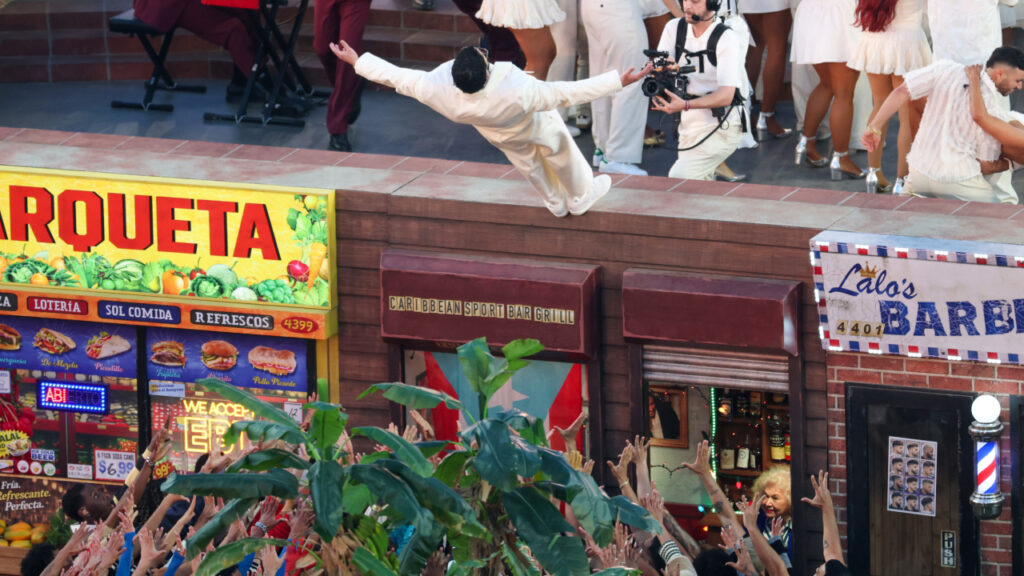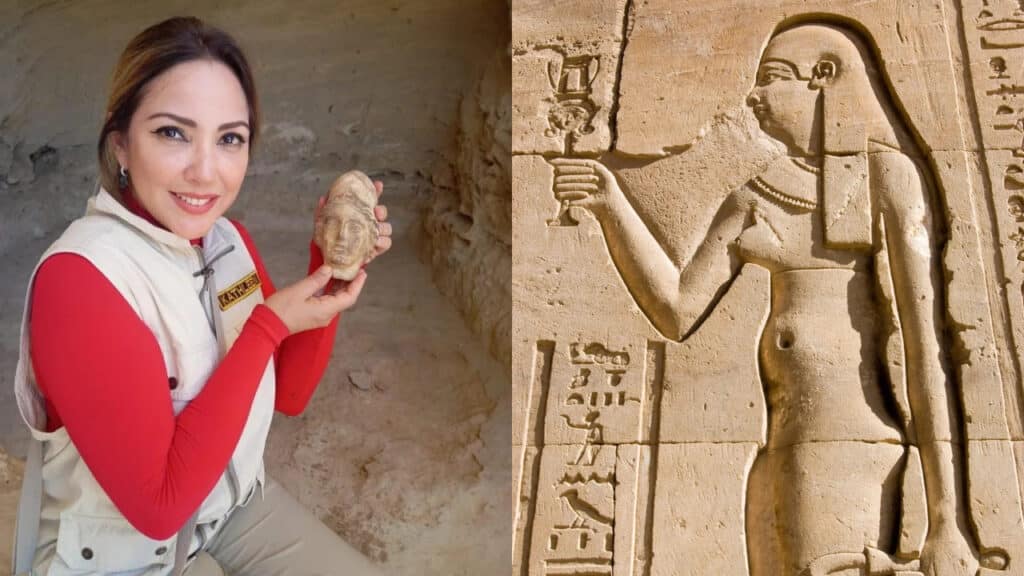
‘Early Detection Saved My Life:’ TV Host Kristina Guerrero on Her Breast Cancer Battle
TV host and journalist Kristina Guerrero was used to interviewing celebrities, but a shocking breast cancer diagnosis at the beginning of this year led her to tell her own story.
We know that breast cancer can affect people of all ages, but for the 44-year-old, it fundamentally changed her life. Within months, she was diagnosed, underwent procedures, and started radiation – all while being a wife, mother, and host.
Guerrero documented her journey and compiled her clips and soundbites into a short film, hoping to empower and inspire others going through similar struggles.
“It was a very vulnerable place to be and was hard to release, but I knew that even if one person saw it and resonated with it, then my job as a journalist was done,” said Guerrero in an interview with FIERCE.
The storyteller tells us more about her 20-year career, how her diagnosis affected her life, and what parts of her Latina culture she leaned on during her fight.
Going for the career she’s always wanted
Born a big dreamer in a small town, Guerrero had long aspired to be on TV. At times, she was discouraged from pursuing her ambitions. She remembers being told that poor brown girls like her didn’t get the opportunities she was looking for.
Guerrero admits that those negative messages made their way into her head, but she was able to block out the noise to go for her goals.
Her extroverted personality and love of performing helped her hone in on a career in broadcast journalism. She went on to earn a degree in that subject from the University of Southern California.
“[I] worked my way up from [being] an intern getting coffee, to interviewing George Clooney on the red carpet, to ultimately hosting my own TV show,” said Guerrero.
She worked as a host and red-carpet correspondent for E! News for many years. Guerrero recently hosted “The List,” a syndicated lifestyle program she calls a “career highlight.” She would tell Latinas interested in following in her footsteps to become a student to those they admire. They should also learn about every production area and work their way up from there.
Guerrero’s life changed dramatically less than a year ago
Things were going according to plan: she was married, raising two young boys, and in a career she loved. However, after having a routine mammogram in December 2022, she received devastating news the next month.
She had been diagnosed with breast cancer in the form of an angiosarcoma. According to the American Cancer Society, it’s a rare and fast-growing cancer that starts spreading in the lining of blood or lymph vessels. “My doctor very frankly told me that if we didn’t remove it, this cancer would kill me,” Guerrero recalls.
It was a complete shock to her, but she found the strength to dig deep and document the process. Guerrero underwent a lumpectomy to remove the tumor and some of the tissue surrounding it. Unfortunately, not all the cancerous cells were removed along the edges of her normal-looking tissue.
The setback left her feeling like she was moving in slow motion while the world continued moving quickly around her. In her documentary, she said it was like “walking through molasses.” Later, she had a unilateral mastectomy to remove the affected breast.
Emotionally, she couldn’t tell if she felt at peace or in denial that this was happening to her.
After the mastectomy, she went to the hospital every day for six weeks for radiation. She felt “giddy” leading up to the treatment because it was “the beginning of the end.”
Guerrero shares the importance of getting checked
While the Centers for Disease Control and Prevention states that cancer is the leading cause of death for Hispanic women, The American Cancer Society notes that breast cancer is the most common type.
In addition to getting annual mammograms, it’s recommended that every woman self-examine their breasts for any irregularities. They should promptly see their doctor if anything looks or feels wrong. While mammograms are usually advised to women aged 40 and older, organizations are starting to endorse them at age 35.
“Early detection saved my life,” said Guerrero, who started getting checked when she was 40. “We think it won’t happen to us, and if I’m being completely honest, I never thought it was something I would have to worry about. It can happen, and it is happening.”
Her cultural strength helped her get through her treatment
Through the challenges she’s faced this year, Guerrero got her courage from her family, whom she calls her support and purpose.
She acknowledges that facing struggle and adversity is a universal experience, but Latinos know it well in their own ways. “But the fight, our work ethic, and the passion that we exude from our souls to overcome and persevere with grace and gratitude is what I leaned on during this time,” said Guerrero.
While fighting cancer this year, she still had to be “on” for work and take care of her responsibilities at home. Guerrero says that although it was a difficult time—and she’s still wrapping her head around it—she sees her experience as a gift.
“It gave me a profound perspective on the importance of family, being present, and truly appreciating the days I’m given,” she said. “I am so grateful.”




